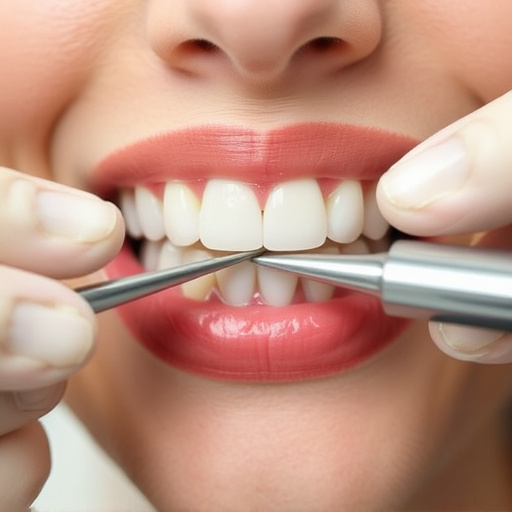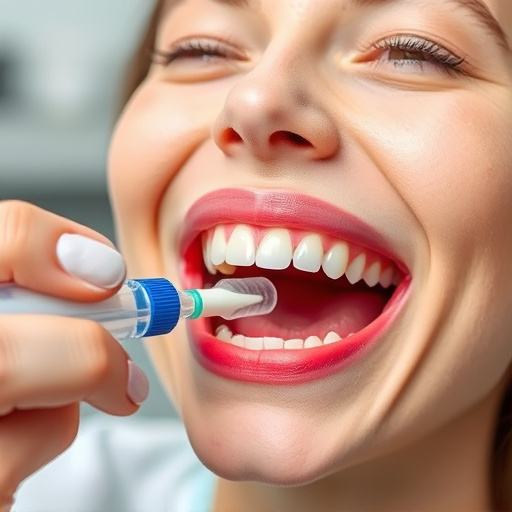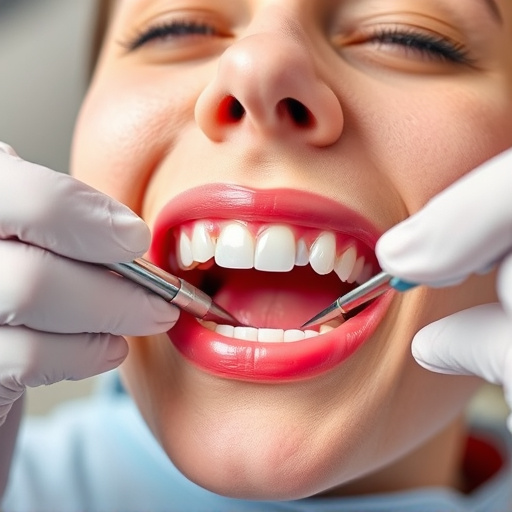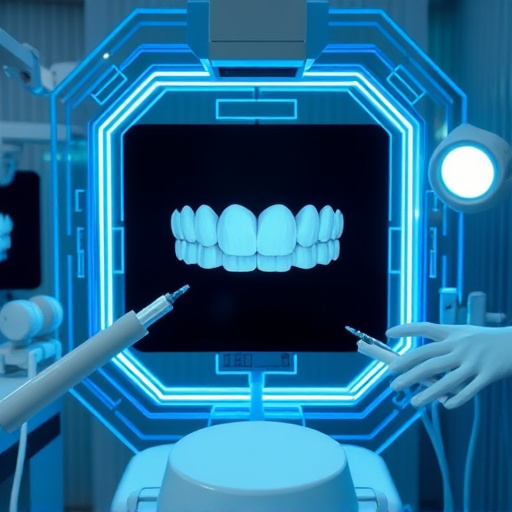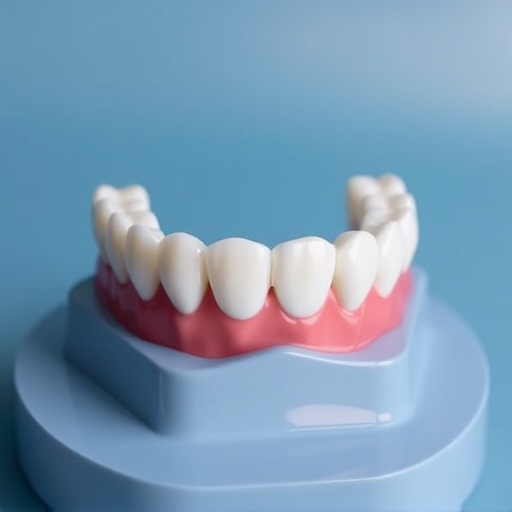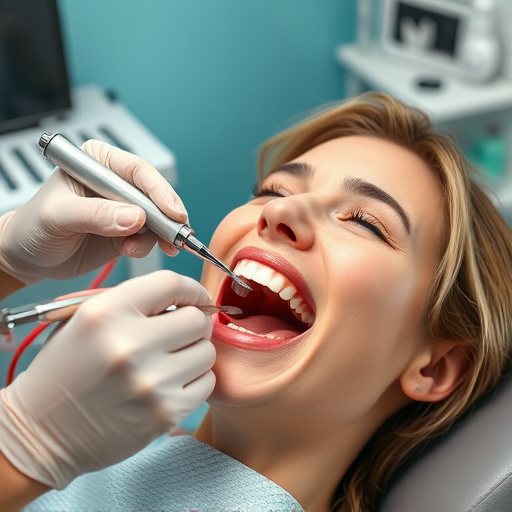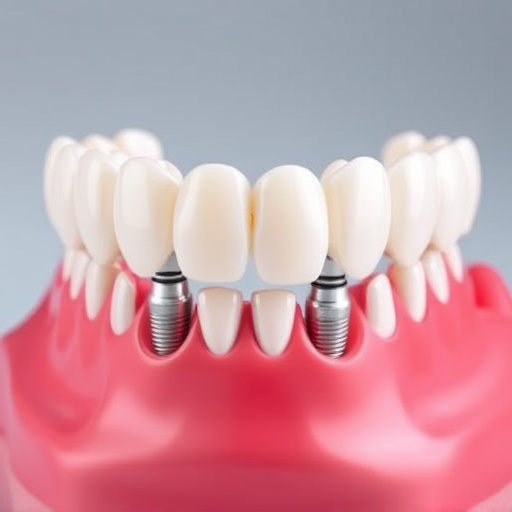Aggressive Periodontitis (AP), a severe gum disease causing tooth loss, is treated with scaling, root planing, and emerging antibiotic therapy. Antibiotic therapy targets bacterial infections, reducing inflammation and promoting tooth repair. Combined with cosmetic procedures like dental bonding, it prevents future damage. Tailored by dental professionals, these plans preserve natural structures, reducing long-term need for invasive treatments.
Aggressive periodontitis is a severe form of gum disease characterized by rapid bone loss and deep pockets between teeth. This condition often goes unnoticed, but it can lead to tooth loss if left untreated. Antibiotic therapy treatment has emerged as a powerful tool in combating aggressive periodontitis by targeting the bacterial infections causing severe inflammation. Understanding the causes and symptoms is key to early intervention, followed by effective antibiotic implementation for optimal oral health.
- Understanding Aggressive Periodontitis: Causes and Symptoms
- The Role of Antibiotic Therapy in Treating Severe Inflammation
- Effective Implementation and Potential Benefits of Antibiotic Treatment Plans
Understanding Aggressive Periodontitis: Causes and Symptoms

Aggressive Periodontitis (AP) is a severe form of periodontal disease characterized by rapid destruction of gum tissues and bone structures that support teeth. This condition typically progresses quickly, often leading to tooth loss if left untreated. Unlike chronic periodontitis, AP can affect both mature and young adults, with men slightly more predisposed than women. The exact causes are multifaceted, involving a complex interplay between bacterial infections and the host immune response.
Common symptoms include deep gum pockets, bleeding gums, swollen or painful gums, loose teeth, persistent bad breath, and an overall feeling of discomfort in the mouth. In severe cases, tooth extractions might become necessary due to bone loss and pocket deepening. While traditional treatments like tooth scaling and root planing can help manage AP, antibiotic therapy treatment has emerged as a game-changer. This approach leverages antibiotics to eradicate bacterial infections, thereby slowing or halting disease progression. Procedures such as cosmetic fillings and cosmetic dentistry may also play a supporting role in restoring oral health and improving overall well-being for patients with aggressive periodontitis.
The Role of Antibiotic Therapy in Treating Severe Inflammation

Antibiotic therapy plays a pivotal role in managing aggressive periodontitis by addressing severe inflammation and its associated complications. In cases where bacterial infections have led to rapid bone loss and pocket formation, antibiotics are often recommended as part of a comprehensive treatment plan. This approach is particularly crucial when non-surgical methods alone fall short in controlling the disease progression.
By targeting specific pathogens, antibiotic therapy can significantly reduce the inflammatory response, promote tooth repair, and create an environment conducive to regrowth. Additionally, it may be integrated with other procedures such as dental bonding or clear aligners to restore oral health and functionality. These combined efforts not only combat current inflammation but also aim to prevent further damage, ensuring better long-term outcomes for patients suffering from this aggressive form of gum disease.
Effective Implementation and Potential Benefits of Antibiotic Treatment Plans

Effective antibiotic therapy treatment plans, tailored by professional dental care providers, play a pivotal role in managing aggressive periodontitis. These treatments involve carefully selected antibiotics strategically delivered to target and eliminate specific bacterial strains responsible for gum disease progression. By effectively implementing these plans, individuals can experience significant benefits beyond symptom alleviation.
Antibiotic therapy not only reduces inflammation and slows tissue damage but also helps restore oral health, preserving the natural structure of teeth and gums. In the long term, this treatment approach contributes to improved overall dental health, potentially reducing the need for more invasive procedures such as dental fillings or cosmetic dentistry interventions that address structural issues resulting from advanced periodontitis.
Aggressive periodontitis demands aggressive treatment, and antibiotic therapy treatment plans have emerged as a powerful tool. By targeting severe inflammation, these tailored therapies offer significant benefits in managing the disease. With proper implementation, they can help restore oral health, prevent further damage, and improve overall quality of life for patients facing this challenging condition.


